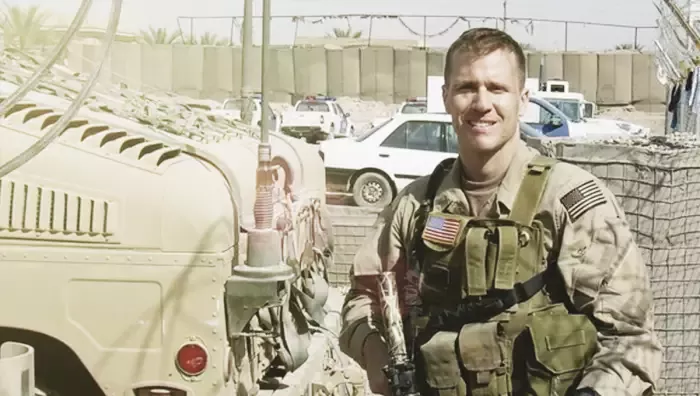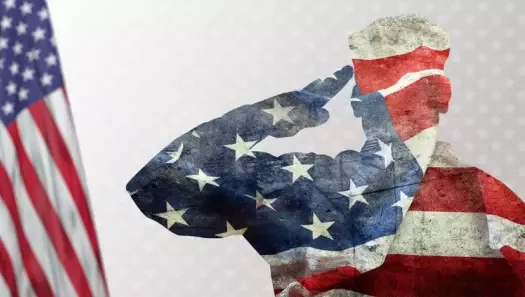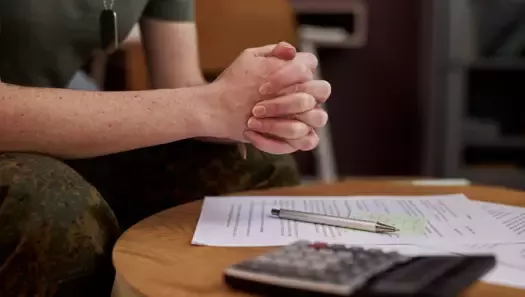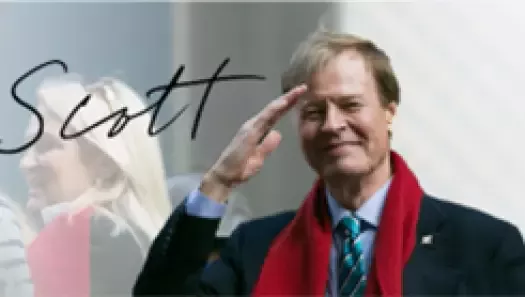WeSalute Awards
HeroVet: Eric Greitens, Chairman and CEO of The Mission Continues

Eric Greitens, a Navy SEAL Officer and Iraq War Veteran, has tapped into a unique blend of brains, heart and guts to serve his fellow Veterans. With intelligence, kindness and courage, he is doing more than helping those less fortunate get back on their feet - he is showing them how to lead in a mission-critical way.
"'Thank you' is a beautiful thing to say, for what they did in the past," Greitens tells Veterans Advantage in an exclusive interview." But we also need to let them know that they can continue to serve and their mission is not over. They have a future ahead of them where we believe they can continue with purpose as citizen leaders once again."
A former Rhodes Scholar and Duke graduate with a Ph. D. from Oxford, Greitens is chairman and CEO of The Mission Continues, a 501c3 charitable organization that doesn't consider its work "charity." Greitens strives to create a culture of those who thrive, not just survive. Now entering its fifth year, The Mission Continues is charged with creating a path for fellow Iraq and Afghanistan Veterans to recover from personal wounds through commitment to community service and leadership.
For Greitens, this sense of shared sacrifice and leading others starts with him.
"I could have made a lot of money, and enjoyed a lot of economic freedom," he says, reflecting on his educational pedigree. "And then I felt the chance to join the Navy would actually make me more as a person."
"The person I would become is the person I wanted to be. Serve my country, help others, apply everything that I had learned. I think that was the best decision I ever made."
The decision paid off, not just for Greitens, whose combat pay provided the initial funding for Mission Continues, but for many others.
Greitens is inspired by a standard of leadership drawn from the front lines. As a youth, he was attracted to programs that included evenings in homeless shelters, and as a young adult, he ventured into dangerous humanitarian missions in Bosnia, Rwanda and Cambodia. His studies at Duke and Oxford, together with 10 years of military service, round out a remarkable journey.
The attraction to military service was spawned first by a deep respect for it in his family. Both grandfathers had served in WWII. But, it also reflected his humanitarian philosophy - "using strength where necessary to protect the weak," as he describes it. A breakthrough moment came while visiting a Croatian refugee camp in the mid-1990s, when one refugee told him. "I appreciate the food that your country provided for my family, but what we really need is the people to stop burning down our villages."
Flash forward a decade later to another wartime experience where a need to protect his fellow servicemen begins to take shape. In 2007, on his last deployment targeting an al-Qaeda cell in Fallujah, Greitens' team was hit by a suicide bomb. Fortunately, he was spared serious injury, but many others were not.
When Greitens came home, he visited friends at Bethesda, and was moved by the "I want to return to my unit" requests he heard repeatedly. Knowing most of them did not have a chance to do so, Greitens countered with the question, "if you can't do that, what else do you want to do?" The flood of responses represented a roll call for public service -- football coaches, teachers, law enforcement officers. They all wanted to serve others.
"It was also clear to me that they all needed to hear 'We still need you. You are not a problem.'"
THE MISSION CONTINUES
Soon after that experience, The Mission Continues was born. According to its Web site, the group seeks "To build an America where every returning veteran can serve again as a citizen leader, and where together we honor the fallen by living their values through service." Returning Veterans are given fellowships, including a stipend, to pursue a leadership path of their choosing through community service.
"We just awarded our 100th fellowship. Our objective in 2011 is to do 100 more, and I think it can be 150," said Greitens." Over the next three years, I want to do 500 lives."
"When they come back, their motivation is actually very high. When you talk to them in a place like Bethesda or Walter Read, they say they want to go back to their unit, and they are ready for the challenge and their recovery. What can happen over time, however, is that at the WTUs (Warrior Transition Units), they begin to realize they are not going to go back to their units. And when they leave their hospital, and are no longer surrounded by their fellow servicemen, that can be a time when we really see symptoms of PTSD."
Publishers Weekly called it "a glorious tale of humanity, resolve, and strength, Greitens's book reminds us of how many things we take for granted in our well-ordered lives"
Greitens's solution at that critical juncture can be described as a solid dose of tough love.
"Our model is very simple: You can get lots of gifts and free tickets. There is flood of charity which can be sent in the direction of the wounded veteran. But we go to them and say 'What are you going to do now?'
"The message has to be 'These guys are smart. --We are not giving this [Fellowship] to you because you are a charity case. But we are giving you this because we are thankful for what you done and we see you as an asset.'"
THE HEART AND THE FIST
As if a diverse background of experiences reflecting courage and compassion is not enough, Greitens is also an author. He recounts many of his formative experiences in his third and most recent book, "The Heart and the Fist: The education of a humanitarian, the making of a Navy SEAL" released last month.
Publishers Weekly called it "a glorious tale of humanity, resolve, and strength, Greitens's book reminds us of how many things we take for granted in our well-ordered lives."
An excerpt, recapping his Navy Seal training sets the tone for The Mission Continues:
"Military training clearly emphasizes the most important leadership quality of all: setting the example. Sometimes that example is physical: 'You better be at the front of the run.' More often, and more importantly, the example is set by the actions you take that express your values."
"Everyone has pain in their life and everyone suffers, and I think what our Fellows demonstrate is that all human beings have is to turn pain into wisdom and suffering into strength."
"It is difficult work. It is a hard thing to say," says Greitens. "But it is exactly the thing they need to hear."
Image Credit: https://ericgreitens.com/



